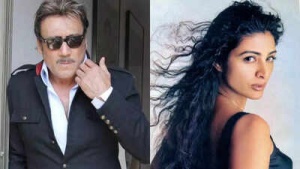After an unprecedented reign of nearly four decades, Anna Wintour is stepping back from her role as Editor-in-Chief of American Vogue. The 75-year-old fashion icon announced at an internal meeting on June 26th that she would be relinquishing her day-to-day duties to a newly appointed Head of Editorial Content.

While stepping down from her previous position, Wintour will maintain her influential roles as Condé Nast’s Global Chief Content Officer and Global Editorial Director of Vogue. This transition signals a significant shift in the fashion and media landscape, sparking intense speculation about who will fill her formidable shoes. The question on everyone’s mind: Who will be the next leader to guide Vogue into the future?
The ideal successor must possess a unique combination of cultural influence, business acumen, and digital expertise. As the industry prepares for a generational change, let's delve into the qualities and potential candidates vying for this prestigious position.
Selecting the new Head of Editorial Content is no easy feat. What qualities will make a candidate worthy of inheriting Wintour’s legacy? What credentials will the next leader need to prove they can handle the pressure and prestige of the role?

Here are the key attributes the next Editor-in-Chief must bring to the table:

Given the prestige of the position, numerous industry figures are likely in contention. Who will be the next influential figure to shape the future of Vogue?

While Condé Nast has not yet announced a successor, several potential candidates have emerged as strong contenders:

Other potential candidates include internal figures like Taylor Antrim (Deputy Editor) and Chloe Malle (Head of Vogue US web), who possess a deep understanding of the brand and represent a path of continuity. The fashion world awaits the announcement of Wintour’s successor, a decision that will undoubtedly shape the future of Vogue and the industry as a whole.
Newer articles
Older articles
 Team India Settles in Birmingham: Rahul's Mattress, Coaches' Strolls, and the Enduring Coffee Ritual
Team India Settles in Birmingham: Rahul's Mattress, Coaches' Strolls, and the Enduring Coffee Ritual
 Android Users Urged to Patch Devices Immediately Following Critical Security Flaws Alert
Android Users Urged to Patch Devices Immediately Following Critical Security Flaws Alert
 Ashada Gupt Navratri 2025: Dates, Auspicious Timings, and Esoteric Significance Explained
Ashada Gupt Navratri 2025: Dates, Auspicious Timings, and Esoteric Significance Explained
 JPG to PDF: A Graphic Designer's Guide to Conversion & Best Practices
JPG to PDF: A Graphic Designer's Guide to Conversion & Best Practices
 Skin Cancer Alert: How to Identify Suspicious Moles and Early Warning Signs
Skin Cancer Alert: How to Identify Suspicious Moles and Early Warning Signs
 IRCTC's AskDisha 2.0: AI Chatbot Streamlines Train Ticket Booking, Refunds, and Travel Information
IRCTC's AskDisha 2.0: AI Chatbot Streamlines Train Ticket Booking, Refunds, and Travel Information
 The stat that could swing every NBA team's 2025-26 season
The stat that could swing every NBA team's 2025-26 season
 Bollywood's Mythological Muse: How Indian Epics Inspire Cinematic Storytelling
Bollywood's Mythological Muse: How Indian Epics Inspire Cinematic Storytelling
 Bollywood Flashback: Jackie Shroff Accused of Untoward Advance on Young Tabu at Danny Denzongpa's Party
Bollywood Flashback: Jackie Shroff Accused of Untoward Advance on Young Tabu at Danny Denzongpa's Party
 Popular Finance YouTuber's Account Hacked: Bitcoin Scam Alert and Security Tips
Popular Finance YouTuber's Account Hacked: Bitcoin Scam Alert and Security Tips